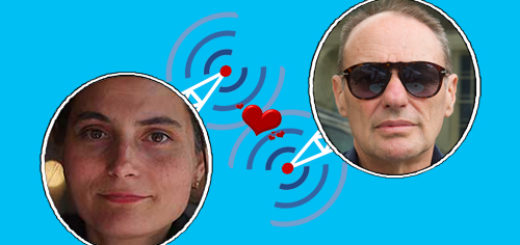When a married man looks at other women, is this infidelity or is this men’s nature?
My husband Stephen Bray and I have responded separately to a question posed by a client of mine: When a married man looks at other women, is this infidelity or is this men’s nature? Here is his answer:
There’s and old joke on the Internet that suggests that the brains of men and women are different. According to it women are preoccupied with buying shoes, whilst men are preoccupied with having sex.

Whilst this clearly not meant to be taken seriously neuroscientists aren’t immune from twisting their observations to fit sex and gender stereotypes. There are differences, undoubtedly, between male and female brains but these are more concerned with size than anything else. Women’s brains tend to be smaller, but this isn’t the same as claiming that they are less intelligent. Indeed a woman’s brain has the same register of connectivity as that of a man it’s just a more compact unit.
Men and women are, of course, anatomically different. This is important because from the point of view of the physiology of the human mind different hormones dominate men and women at various stages of their lives. These give rise to different primal urges. A primal urge is one that is instinctive, such as to run from danger, to rescue one’s young from a fire, or to turn and fight if attacked.
These urges are hard-wired into each of us in a series of four compartments of the brain. These compartments in turn communicate with each other, and also with our hormonal and respiratory systems.
The brain areas in this illustration are thought to have implications for our ability to have the power to make choices, or be possessed of free will.
It has been suggested that being mindful mostly serves to cancel certain actions initiated by unconscious processes. If this is so, then it follows should a man, or woman, identify a member of the opposite gender as a potential mate then this could just be a function left within us from times when marriage, monogamy, and social behaviours were less prescribed. Indeed, back then, and in other societies such as tribes in the Amazon and other remote parts of the world today, such flexibility may be essential for the survival of those communities.
Closer examination of these alternative societies shows, however, that whilst polygamy is more common than polyandry, this may simply reflect the relative numbers of respective genders in the communities under examination.
The questioner poses her inquiry in a scientific way, but is it really a scientific question she is asking? This is something we must ask. The questioner doesn’t ask about women’s sexuality, but solely that of men. This leads me to consider that it may be motivated by her own insecurities within her relationship.
On first consideration she probably would like her spouse to have been transformed by marriage, or being in relationship with her, so that the presence of another woman has no affect upon him either physically, or psychologically.
On closer examination, however, this is a weak solution to her problem because it means that the spouse is nothing more than an automaton, with no free-will as such and who no longer chooses her against the temptations of the world on a daily basis. I doubt that most women truly want their partners to undergo such an emotional vasectomy. Do they not instead wish to be constantly affirmed as soul-mate, and constant sexual partner?
A stronger solution to the wife’s dilemma is for her to revel blissfully in the knowledge that her husband is a complete feeling man capable of procreating across the entire globe were he to wish it, but who instead chooses to confine his attention to one woman in order to support her endeavours, as well as those of any potential children. She feels secure in his love for her.
There comes a time, for a few of us, when we reach a state of equanimity. This is a state of psychological stability and composure which is undisturbed by experience of or exposure to emotions, pain, or other phenomena. This isn’t the same as living as emotionally castrated automata because feelings are experienced deeply and compassionately by such people. The difference is that we are no longer affected by them.
The word “Islam” is derived from the Arabic word Aslama, which denotes the peace that comes from total surrender and acceptance. A true Muslim would experientially behold that everything happening is meant to be, and stems from the ultimate wisdom of God; hence, being a Muslim can therefore be understood to mean that one is in a state of equanimity. Equanimity rests at the core of every major world religion and mystics who are at one with it can help us to manage the worldly challenges of everyday life.
One cannot choose to become a mystic, in the same way as we may decide to get married, or train as a lawyer or psychologist. Even following a devout religious path won’t necessarily lead you to becoming a mystic.
There is probably a neurological correlate to equanimity. If so it would mean that the many parts of your brain, which normally pull us in many directions would work in harmony.
For example: the intuitive right brain, the logical left brain, the emotional mid-brain, and the primitive stimulus-response brain stem will resonate at compatible frequencies in those of us submerged in equanimity.
Living with such people is both exciting and troubling. Most are not ready to do so, which is why they fall back upon societal rules, indulge in self-doubt and, sometimes, ask on-line psychologists questions.
You can read my answer here.




